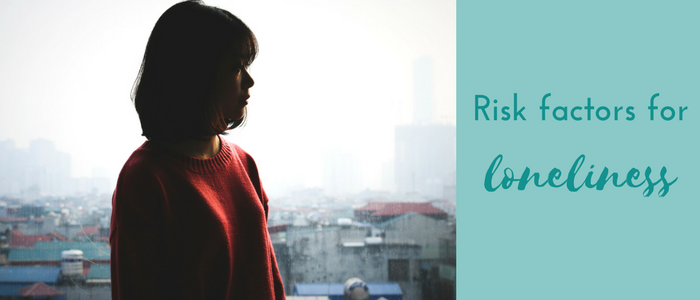Risk factors for loneliness
The effects of loneliness are considered as harmful as smoking 15 cigarettes a day. Understanding loneliness, and especially who it affects, is important if we want to tackle the problem.

At the start of 2018 the Prime Minister announced the government’s plans to tackle loneliness in Britain, part of this strategy involved an investigation into who was affected and what the risk factors for loneliness are.
Using data from the Community Life Survey (2016 – 2017), the Office for National Statistics (ONS) have pieced together an interesting picture of who is affected, and what characteristics/circumstances they share.
The first statistic of note is that in England (2016 – 2017) 5% of adults reported feeling lonely ‘often’ or ‘always’.

Other key findings:
- Women reported experiencing loneliness more often than men.
- Younger adults (aged 16 – 24) were significantly more likely to report feeling lonely ‘often/always’ than other age groups.
- Those who were widowed were significantly more likely to report feeling lonely ‘some of the time’.
- People with poor health reported experiencing loneliness more often.
- Unemployed people reported being lonely more often.
- People living as a couple report being lonely less often.
- Renters and those who don’t have a sense of belonging in their neighbourhood report feeling lonely more often.
Looking at key factors for loneliness, the ONS came up with three profiles of the most lonely people in Britain.
These were:
Widowed older homeowners living alone with long-term health conditions
Unmarried, middle-agers, with long term health conditions
Younger renters with little trust and sense of belonging to their area
While these findings are interesting and represent a step towards tackling loneliness in the UK, it’s important to note that all of us can experience loneliness, regardless of our situation. If you are struggling with feelings of not belonging and loneliness, know that there are people you can speak to and never be afraid to reach out for professional support.

Find a therapist dealing with Loneliness
All therapists are verified professionals


